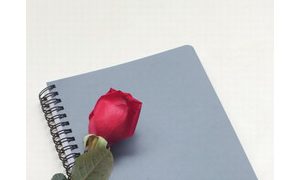Reflexive Pronouns 反身代名词包括:
myself
yourself
yourselves
himself
herself
itself
ourselves
themselves
「反身代名词」不只是重要文法,更是加强语气的好工具。以下是要注意的地方:
注意后面连接的动词
注意后面连接的介系词:除了 “by” 以外,介系词的后面通常也不应该出现介系词
注意是不是有多个情境参与者:反身代名词只能指涉句子里同样的人事物,如果描述的情景有一个以上的参与者,还有互动的动作在发生,反身代名词就不是正确的用语,而正确的的代名词就应该是 “each other”。
1. 反身代名词基本的用法:把动作「反弹」到句子开头的名词身上。
反身代名词最基本的用法就是表达一个句子的「主词」也是「动词的受词」。简单的解释就是中文讲的「照顾自己」、「告诉自己」、「把自己搞好」的这种语法。
(O) The kitten licked itself until its fur is shiny and smooth.
小猫把自己的毛舔到光滑。
(O) The baby cried himself to sleep.
宝宝哭着哭着就睡着了。
(O) The children thoroughly washed themselves after a day outdoors.
孩子们在外面玩了一天以后彻底的把自己洗干净了。
(O) The young musician taught herself to play five different kinds of instruments.
年轻的音乐家教会了自己五种不同的乐器。
(O) The athlete with a broken shoulder is frustrated because he cannot dress himself.
肩膀摔断的运动员因为他无法自己穿衣服而感到沮丧。
(O) The students all enjoyed themselves at the concert after finishing the final exams.
学生们在完成期末考试后,在演唱会享受自我。

2. 反身代名词是加强语气的好工具
英文有许多强调语法的用语。当反身代名词的出现是为了强调语态,虽然在文法上是可有可无的,可是在对话时,可以明显强调想要表达的情感或者意图。
Please take care.
请保重。
(加强语气)
Please take care of yourself.
请好好照顾自己。
Please keep the kitchen clean.
请保持厨房的整洁。
(加强语气)
Please clean up after yourself after each meal.
用餐后请自己打扫。
I cannot believe that I drove 600 miles in one night.
我不敢相信我在一个晚上开车开了 600 英里。
(加强语气)
I cannot believe that I drove 600 miles myself in one night.
我不敢相信我自己一个晚上开车开了 600 英里。
The employees who do not receive proper training are more likely to get hurt.
有接受适当训练的员工更容易受到伤害。
(加强语气)
The employees who do not receive proper training have higher chances of hurting themselves.
没有接受适当训练的员工伤害自己的机会较高。
3. 不适合反身代名词的动词
常常练习、阅读、观察别人的英语用词时,就会发现有的动词即使是要反射到同样的名词身上,也永远不会使用到反身代名词。如果画蛇添足、硬是套上反身代名词,就会造成牛头不对马嘴,不论怎么听或者阅读都不对的感觉。来看看例子:
(不顺畅的语态)
It’s impossible for the employees themselves to adapt to the new software.
员工不可能自己去适应新的软体。
(顺畅的语态)
The employees need professional training to adapt to the new software.
员工需要专业的培训来适应新的软体。
(不顺畅的语态)
I am dying to shower myself after doing sports.
做完运动以后我巴不得给自己淋浴。
(顺畅的语态)
I am dying to take a shower after doing sports.
做完运动以后我巴不得赶快淋浴。
*延伸*
看到好多种动词,很难记起来他们的用法?可以看看这篇文章:
增加片语量小技巧:掌握一个动词的各种搭配词!超常见5个动词的搭配词整理
(不顺畅的语态)
You need to relax yourself after a whole week of working overtime.
加班了一个星期之后你需要自己放松。
(顺畅的语态)
After working overtime for a whole week, you need to relax your body and mind.
加班了一个星期之后你需要放松的身与心情。
(不顺畅的语态)
I can never myself remember the important dates.
我自己永远不能记得重要约会的日子。
(顺畅的语态)
It’s difficult for me to remember dates.
记得日期对我来讲是很困难的。
(不顺畅的语态)
The family moved themselves to Canada.
一家人把自己搬动到加拿大。
(顺畅的语态)
The family immigrated to Canada.
一家人移民到加拿大了。
(不顺畅的语态)
During vacation, she feels like she is meeting herself again.
渡假时,她感觉再次与自己见面。
(顺畅的语态)
During vacation, she feels like she is getting to know herself again.
渡假时,她感觉再次认识自己。
(顺畅的语态)
During vacation, she feels like she is getting to know her own thoughts and feelings again.
渡假时,她感觉再次了解自我的心灵。
4. 介词的后面不应该出现反身代名词
除了常常出现的 “by myself, by himself, by themselves” 的片语之外,大部份的介词后面,都应该使用受格 (objective) 或者所有格 (possessive) 来正确的表达想法与情景。如果过度的使用反身代名词,就会像是说「我去淋浴我自己」一样,逻辑诡异。
(不正确的形容)
He set down his backpack next to himself.
他把背包放下来在自己的旁边。
(正确的形容)
He set down his backpack next to his legs.
他把背包放在腿的旁边。
(正确的形容)
He set his backpack down besides his chair.
他把背包放在椅子的旁边。
(正确的形容)
He strapped his backpack on the back of his chair.
他把背包绑在椅背上面。
(不正确的形容)
She placed her purse on herself.
她把皮包放在自己的上面。
(正确的形容)
She placed her purse on her own lap.
她把皮包放在腿的上面。
(正确的形容)
She put her purse down on the chair, behind her lower back.
她把皮包放椅子上,背部的后面。
(正确的形容)
She hung her purse on the back of her chair.
她把皮包挂在椅背上面。
(不正确的形容)
She applied the bandage on herself.
她把绷带用在自己上。
(正确的形容)
She applied the bandage on the wound on her leg.
她把绷带用在腿上的伤口。
许多不同的介词出现时,所形容的一切都需要仔细解说。可是如果只有一个人、或者单独的团体出现时,就没有那么复杂。
(X) The basketball player practiced with himself.
篮球选手与自己练习。
(O) The basketball player practiced alone.
篮球选手独自的练习。
(O) The painter can only work by himself.
画家只能单独的工作。
(O) The sensitive teenager never goes to the mall or the movies by herself.
敏感的情少女从来没有自己去商场或看电影。
(O) The child learned to make breakfast by himself by the time he was in third grade.
小孩子在小学三年级时就学会了自己做早饭。
(O) The young couple declined their friends’ invite to go camping, because they prefer to explore nature by themselves.
年轻的夫妻拒绝了他们的朋友一起去露营的邀请,因为他们更喜欢自己去探索大自然。
5. 互动 (reciprocal) 的动作正确的代名词是 “each other”
在言语表达中,反身代名词的作用一直是「把注意力抓回来到原点」。如果想要表达的事情有「一个以上的参与者」,并且他们之间有「互动」(reciprocal) 的话,使用反身代名词就会变得不正确了。这种时候,正确的的代名词是 “each other”,才会把想要表达的动词,像是网球一样,有互相来回的感觉。
(X) The opposing players glared at themselves when they shook hands.
对立的球员在握手时激烈的盯着自己 。
(O) The opposing players glared at each other when they shook hands.
对立的球员在握手时激烈的盯着对方。
(X) The siblings always took care of himself and herself.
兄弟姐妹一直照顾他自己还有她自己。
(O) The siblings always took care of each other.
兄弟姐妹一直照顾对方。
(X) The kittens live in the same house, yet they have their own territories because they hate themselves.
小猫们住在同一个房子、各自有地盘、因为它憎恨自己。
(O) The kittens live in the same house, yet they have their own territories because they hate each other.
小猫们住在同一个房子、各自有地盘、因为它们憎恨对方。







